Have fun with words and exercise your brain with these word games.
Writers work with words, but many writers also like to play with words. This makes sense; writing can be a puzzle at times – when the writer tries to find the right word or phrase – and there is a playfulness in finessing your writing to get it just exactly right.
When you need some downtime from your writing, why not play some word games? Not only will they amuse you and distract you, but they may also exercise your mind and make writing, or at least finding the right words, a bit easier.
A Wordle a day
Unless you’ve been in a cave for the past year, you’ve certainly heard about Wordle. This simple word game went viral in late 2021, and was purchased by the New York Times shortly after in a seven-figure deal. Originally created by developer Josh Wardle for his partner who likes word games, it’s similar to a much older game called Jotto, or the TV game show Lingo. You get six chances to solve a five-letter word, and the game shows you which letters are used in the word, and which are correct and in the right position.
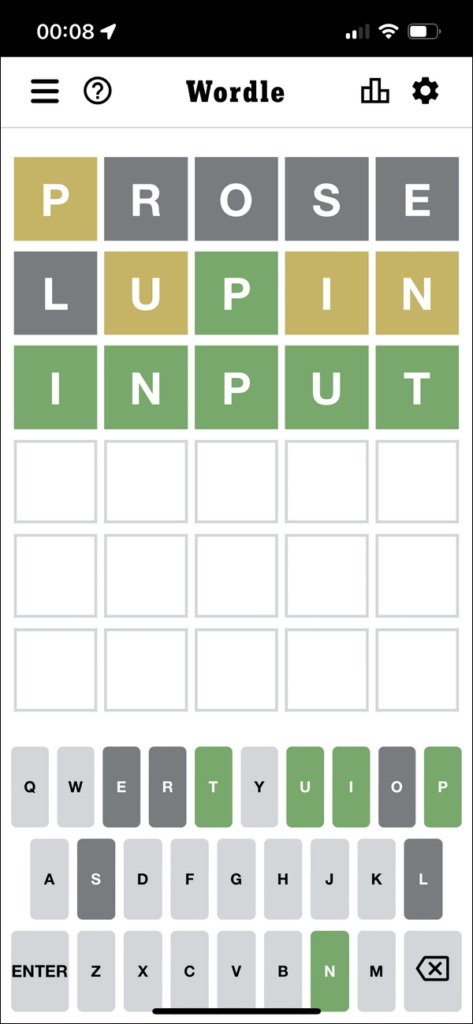
Wordle is as much a logic puzzle as a word game, and part of its charm is that there is only one game per day. There are many apps that have copied the idea, but I like doing Wordle just once to start off the day (or end it, if I’m up that late; games change at midnight GMT).
Wordle is free for now, but it’s likely that the New York Times will fold it into their subscription game package in the future.
Spelling Bee
Another New York Times game, Spelling Bee presents a honeycomb of seven letters. You must make as many words, four letters or longer, that you can, including one or more pangrams, words that use all seven letters.
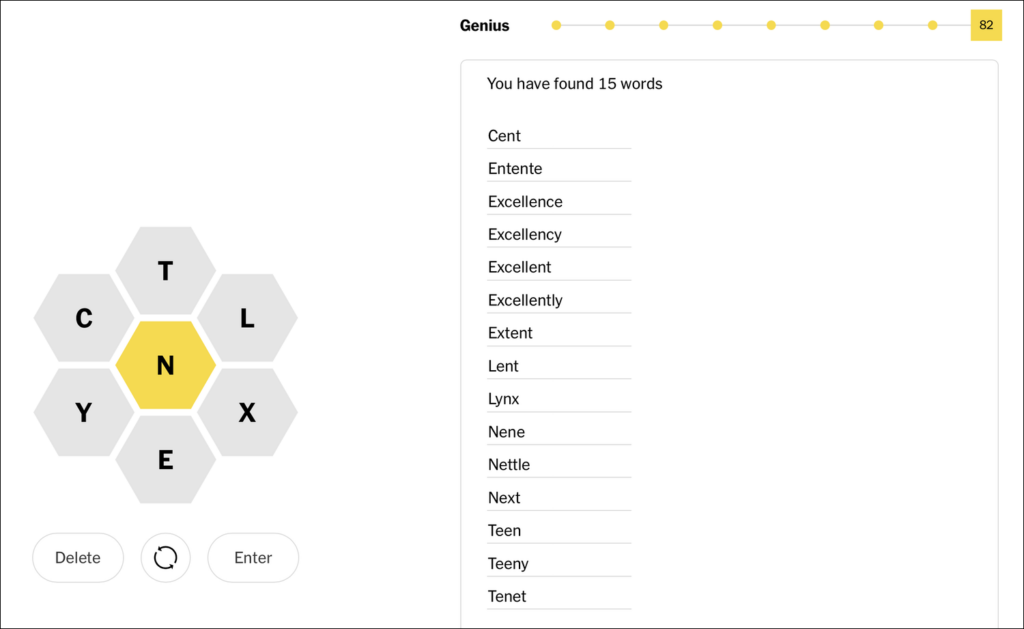
You get one point for each four-letter word, and for longer words, one point per letter; you also get a bonus of seven points for each pangram you find. The ultimate goal is to reach Queen Bee status, and find all the words, but this is difficult. I satisfy myself with attaining Genius level most days, which you get if you attain 70% of the point total. It’s fun and frustrating.
Spelling Bee is part of the New York Times games subscription, which costs $40 a year. You can subscribe through the New York Times, or via Apple’s App Store or the Google Play store in the New York Times Crossword app.
Crosswords
If this article is heavy on the New York Times, it’s partly because it has a great selection of word games, but also because of the quality of their crossword puzzles. Now 80 years old, the New York Times crossword is the gold standard of American crossword puzzles. They have varying levels of difficulty: Mondays are easiest, Saturdays are hardest, and the large Sunday puzzles are generally about the level of Thursdays. If you are a crossword fan, the subscription mentioned above is a no-brainer.
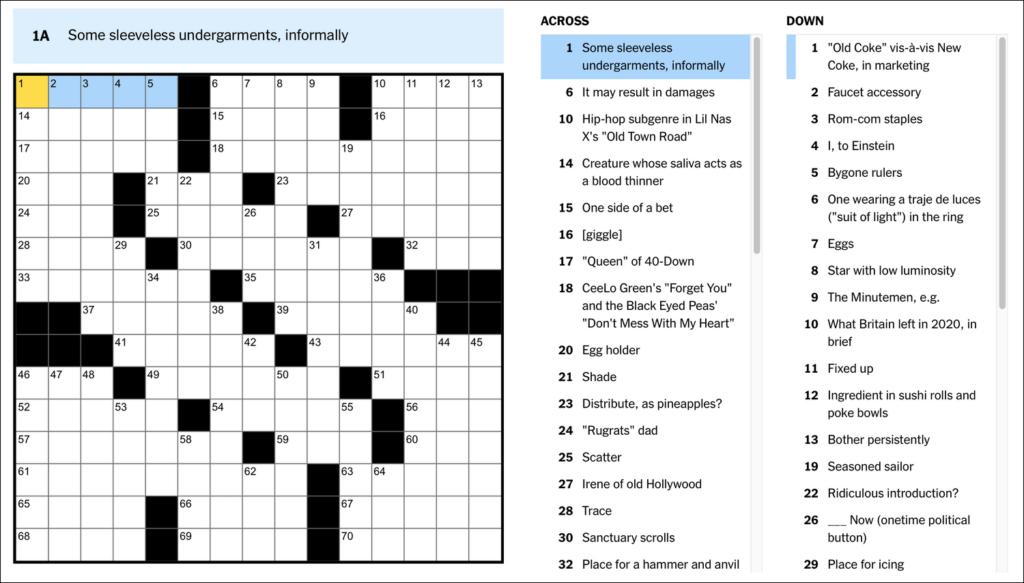
For a different type of puzzle, you can try cryptic crosswords. Mainly British, these crosswords are tricky and complex, and gave a steep learning curve. All British newspapers publish cryptic crosswords, and many have more traditional crosswords, often called quick or concise puzzles. The grids of British crosswords are different from American crosswords, giving less overlap, and this can make them more difficult.
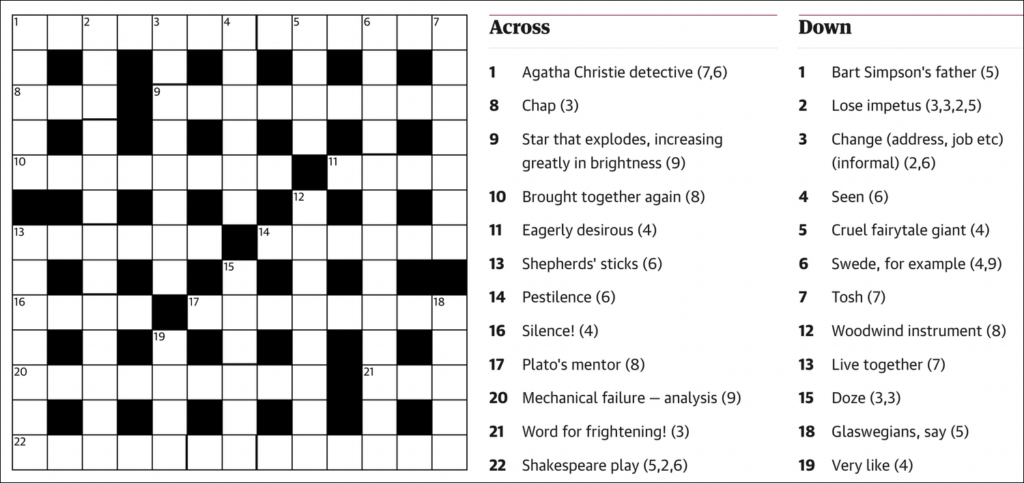
Newspapers like The Guardian, The Times, and The Telegraph offer daily cryptic crosswords along with quick and concise puzzles. This Wikipedia article lists a number of other newspapers, including in other countries, that feature cryptic crosswords, as well as books that explain how to solve them.
Cryptic crosswords are deduction puzzles, unlike other crosswords that mainly feature clues that exercise your ability to find the right word. That latter process can be helpful for your writing.
Knotwords
Knotwords is a new game for iOS, Android, and Steam, that combines crosswords and sudoku. You see available letters for each section of a puzzle, then you have to figure out how they all fit together to make words. You can get hints in the puzzles, if you need them, and you can build up streaks by completing the various daily puzzles.
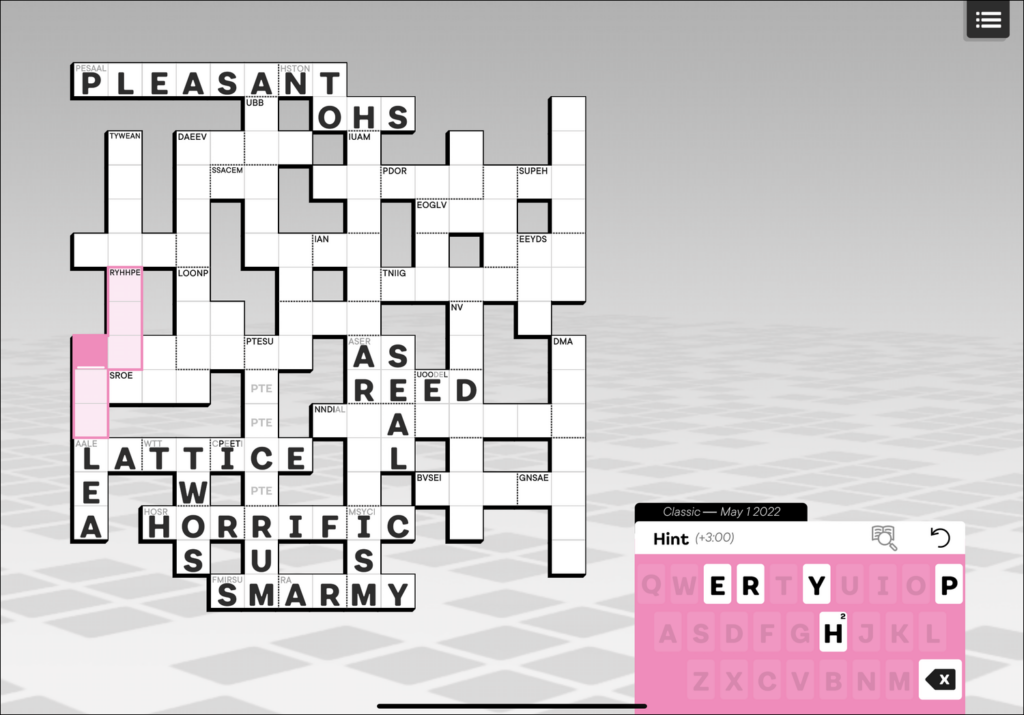
With progressive difficulty during the week, and easy Daily Mini puzzles, Knotwords is a great alternative to classic crosswords.
When you take a break from writing, you may want to stop thinking about words. But if you do want to have fun with words, and exercise your brain, all of these games are a great way to do so.
Kirk McElhearn is a writer, podcaster, and photographer. He is the author of Take Control of Scrivener, and host of the podcast Write Now with Scrivener.

